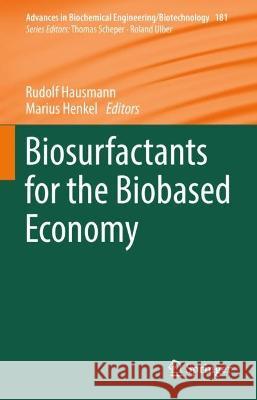Biosurfactants for the Biobased Economy » książka
topmenu
Biosurfactants for the Biobased Economy
ISBN-13: 9783031073366 / Angielski / Twarda / 2022
Biosurfactants for the Biobased Economy
ISBN-13: 9783031073366 / Angielski / Twarda / 2022
cena 1210,50
(netto: 1152,86 VAT: 5%)
Najniższa cena z 30 dni: 1156,64
(netto: 1152,86 VAT: 5%)
Najniższa cena z 30 dni: 1156,64
Termin realizacji zamówienia:
ok. 22 dni roboczych
Dostawa w 2026 r.
ok. 22 dni roboczych
Dostawa w 2026 r.
Darmowa dostawa!
This book provides a comprehensive overview of current biosurfactant research and applications. Public awareness of environmental issues has increased significantly over the last decade, a trend that has been accompanied by industry demands for climate-friendly and environmentally friendly renewable raw materials. In the context of household products, biosurfactants could potentially meet this demand in the future due to their low ecotoxicity, excellent biodegradability, and use of renewable raw materials.
The diversity of this class of molecules, which has only been marginally tapped to date, offers only an inkling of their future application potential. However, there are two main obstacles to their widespread commercial use on the growing surfactant market: the lack of attractive and competitive production technologies, and the limited structural diversity of commercially available biosurfactants. Addressing both of these core issues, this book will provide readers with a deeper understanding of the role of biosurfactants, including future opportunities and challenges.











